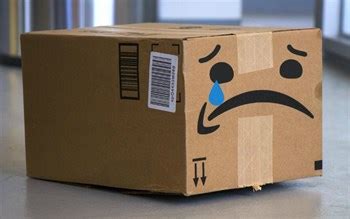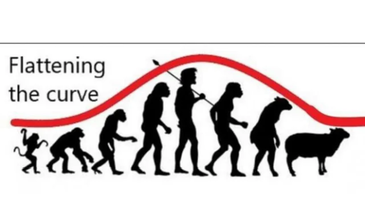 LONDON, ONTARIO – As a writer who shuns distractions and a technophobe who shuns gadgets, I like nothing more than to be left to the non-manufactured devices I was born with. I’ve never wanted a cell phone and refuse to get one. My old school rotary phone is no smarter than my toaster or my coffee grinder and I am here to tell you that even in the year of our Lord 2021 (and so long as you know how to use a road map) it is still possible to live a blissfully app-free life. I remain one of the most constant readers of physical books that I know and subscribe to three physical newspapers (the London Free Press, The Catholic Register and Epoch Times) which are regularly delivered to my door. Yes, I use a computer but mostly as a glorified typewriter and e-mail server and – as you who are good enough to visit this site can attest – as a do-it-yourself publishing platform. While I do seek out a lot of news and information on the interwebs (sometimes to the point of getting swamped by the indigestible excess and having to impose a fast), I refuse to employ such gargantuan outfits as Microsoft or Google as my browser or search engine. I barely joined Facebook about ten years ago to get access to some family pictures but haven’t been back since and should probably employ the services of somebody under the age of forty to extricate me from even that negligible connection, Perhaps needless to say, I have never been tempted to get involved with Twitter or LinkedIn or any of the other so-called social media platforms. Even before we realized the extent to which these electronic purveyors of information and connectivity were also gathering and dispersing information on their users, I was leery of affiliating with businesses that were so disconcertingly huge. This resistance may have been innate or perhaps it was planted in my heart by the astute warning conveyed in so many of the fairytales, legends and scriptural parables I’ve been imbibing all my life. From Jack & the Beanstalk and the Tower of Babel to Frankenstein and The Lord of the Rings (to name but four) these profound tales advise anyone who prizes freedom of movement and thought to shun behemoths of every stripe for the simple reason that, ‘Really Big is Always Really Bad’. It scarcely matters if the ogre in question is a person or an organization or if it claims that it is only motivated by the finest of intentions. Whether its mischief is deliberately wrought or is only a careless byproduct is also a question of secondary concern. The iron law of largeness is that honour and fair play invariably dissipate with unchecked growth. Once an entity takes on sufficiently gargantuan proportions, it loses the capacity to control the weight it throws around. Any business which is allowed to straddle the globe will inevitably start to tilt the globe in the directions it prefers for its own selfish reasons. In this Lenten season of repentance I am moved to confess that there is one instance where I failed to resist our civilizational stampede into the maw of electronic manipulation until early this year when I finally severed all connection with that many-tentacled usurper of local and independent enterprise, Amazon. I never felt right about giving them my business for a plethora of reasons but found unworthy and thimble-deep justifications to muffle my unease. Aside from all the underlying principles I disregarded in order that I could do business with Amazon – more on these presently – I was still creeped out quite regularly by that firm’s algorithmic simulation of insight into just what made me tick. I would buy a box set of early Incredible String Band recordings and then be told that I must be interested in acquiring a similar collection of music by Enya or Roger Whitaker. What the hell? Do you take me for a dope? And then there was the time I was persuaded to order up some rather specialized nylon nighties for my mother-in-law which my wife couldn’t find in local shops. That surreal transaction was followed up by humiliating notices to “Check out these bargains in seniors’ lingerie, Herman.” If a business really knew me or wanted to retain my custom, they would surely have known better than to ever allude to that harrowing purchase again. At least five years ago my commendably clear-eyed sister-in-law bailed out on Bezos-Inc. and I’m rather ashamed I didn’t follow her lead back then. The big sticking point for her was Amazon’s abysmal treatment of its employees and the devastating impact that the online retailing behemoth was exacting on local brick and mortar businesses. I was not entirely ignorant of the damage Amazon was wreaking in those ways but cravenly overlooked it for the sake of personal convenience and savings. I flattered myself that, geriatric undies aside, I was only filling up my Amazon cart with fairly recherché cultural artifacts – books, recordings and movies - that local shops didn’t carry. (Perhaps not, but they probably could’ve been special-ordered by those shops and thereby contributed to the flourishing of the community where I happen to live.) But there were way too many occasions, particularly in the weeks before Christmas, when the goods I sought weren’t the least bit exotic and I gave in to miserly sloth and ordered up stuff from the Nowheresville of Amazon for the sake of sparing myself a few extra bucks and a quick trip into town. Going forward I pledge to give local businesses first dibs on winning my patronage. During this last dispiriting year of enforced retail lockdowns, this pillaging of the local by the global became more abundantly obvious than ever as governments, with dubious legal authority, forced millions of small enterprises to shut down for the sake of preventing the spread of the Chinese Batflu virus. Couching their dictates in witless, regurgitated phrases about “growing the economy” or “flattening the curve”, it became abundantly apparent that the bureaucrats imposing these enterprise-squelching measures harbored no particular insight into how commerce or medicine actually work. And yet these drones became the determiners of which citizens’ livelihoods were ‘essential’.  Secure in the knowledge that their unionized sinecures would never be similarly threatened, apparatchiks sidelined the livelihoods of millions of their fellow citizens. Then that same fiscally incontinent government issued emergency pogey to help everybody ride out the slump which they had just imposed. And with all that borrowed moolah circulating at a time when so many local enterprises were shuttered, soulless hellholes like Walmart, Costco and most particularly, Amazon, made out like bandits as they hoovered up everybody else’s lost business. Of course, someday, somehow, all that unearned money will have to be accounted for and paid back by every last one of us. But what turned out to be my breaking point was when Amazon began to defect with particular flagrancy on their only conceivable saving grace. There might be some justification for their continued existence if they maintained ideological neutrality in making any legal good available to their customers at a competitive price. But now they’ve started withholding certain goods that run afoul of their rancid, woke ideology. First they yanked a sympathetic biographical documentary of conservative Supreme Court Justice, Clarence Thomas, from their Prime streaming service . . . during Black History Month, no less . . . while still streaming that hagiographic bonbon, RBG, about Thomas’ late liberal colleague, Ruth Bader Ginsburg. Then without a word of explanation, they suddenly suspended sales of Ryan Anderson’s book, When Harry Became Sally: Responding to the Transgender Moment. I hope to get my mitts on a copy of Anderson’s book because I‘ve been so impressed by both the knowledge and human generosity on display in related articles of his that I have read. The man is anything but a purveyor of hate as Amazon is suggesting by their censorious action. “But hey there, Mr. G.,” I imagine some will say. “Would you deny any retailer the right to not carry some book with which they strongly disagree?” If we were talking about an ordinary bookshop, I would not. But in North America, Amazon now controls at least fifty per cent of the total book market and seventy-five per cent of the e-book market. That may not quite constitute the legal definition of a monopoly but it’s getting there. That is not only a big enough slice of the pie to decimate a book’s possible success; it could scare off publishers from working with any writer who’s ever incurred Amazon’s censure. It could also, not so subtly, have a chilling effect on publishers generally as they now must wrestle with the advisability of publishing any book by any other writer who might hold a point of view that might offend some snowflake in the inventory department of Amazon Inc. When our society's predominant book retailer ceases to uphold the free exchange of ideas, we've got ourselves a real problem. And it is - as I knew all along and am sorry that I ever forgot - a problem of size.
2 Comments
Dan Brock
22/3/2021 03:43:31 pm
I really enjoyed this week's article. I'll enjoyed the previous ones as well.
Reply
Barry Wells
22/3/2021 10:01:13 pm
I think you may have nailed the giant Achilles heel of the Roman Catholic Church with the following lines, noting the RC Church is arguably the wealthiest nongovernmental organization on the planet and also the largest nongovernmental owner of land:
Reply
Your comment will be posted after it is approved.
Leave a Reply. |
HERMANEUTICS
If you would like to contribute to the ongoing operations of Hermaneutics, there are now a few options available.
ALL LIFE IS A GIFT :
THE IMPORTANCE OF TRADITION :
Archives
June 2024
Categories
|

 RSS Feed
RSS Feed